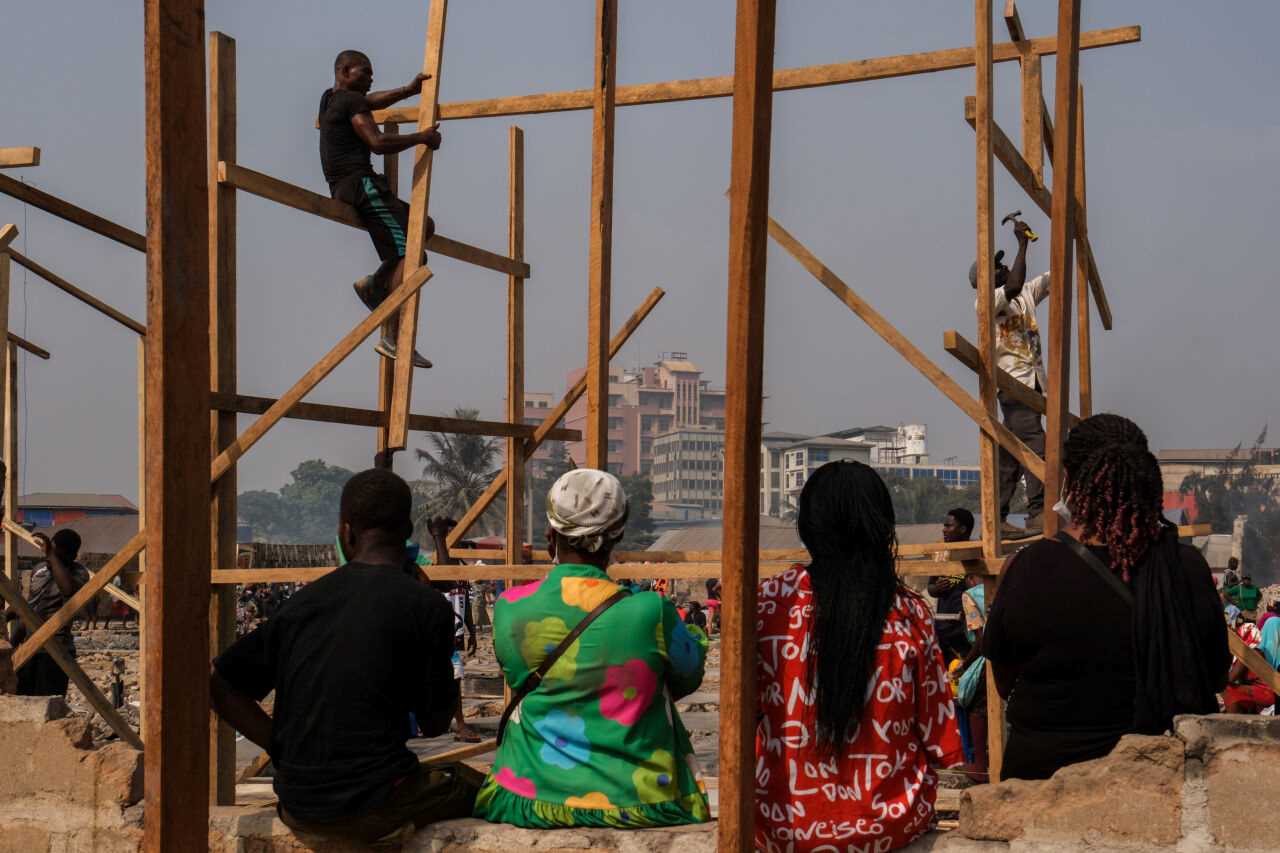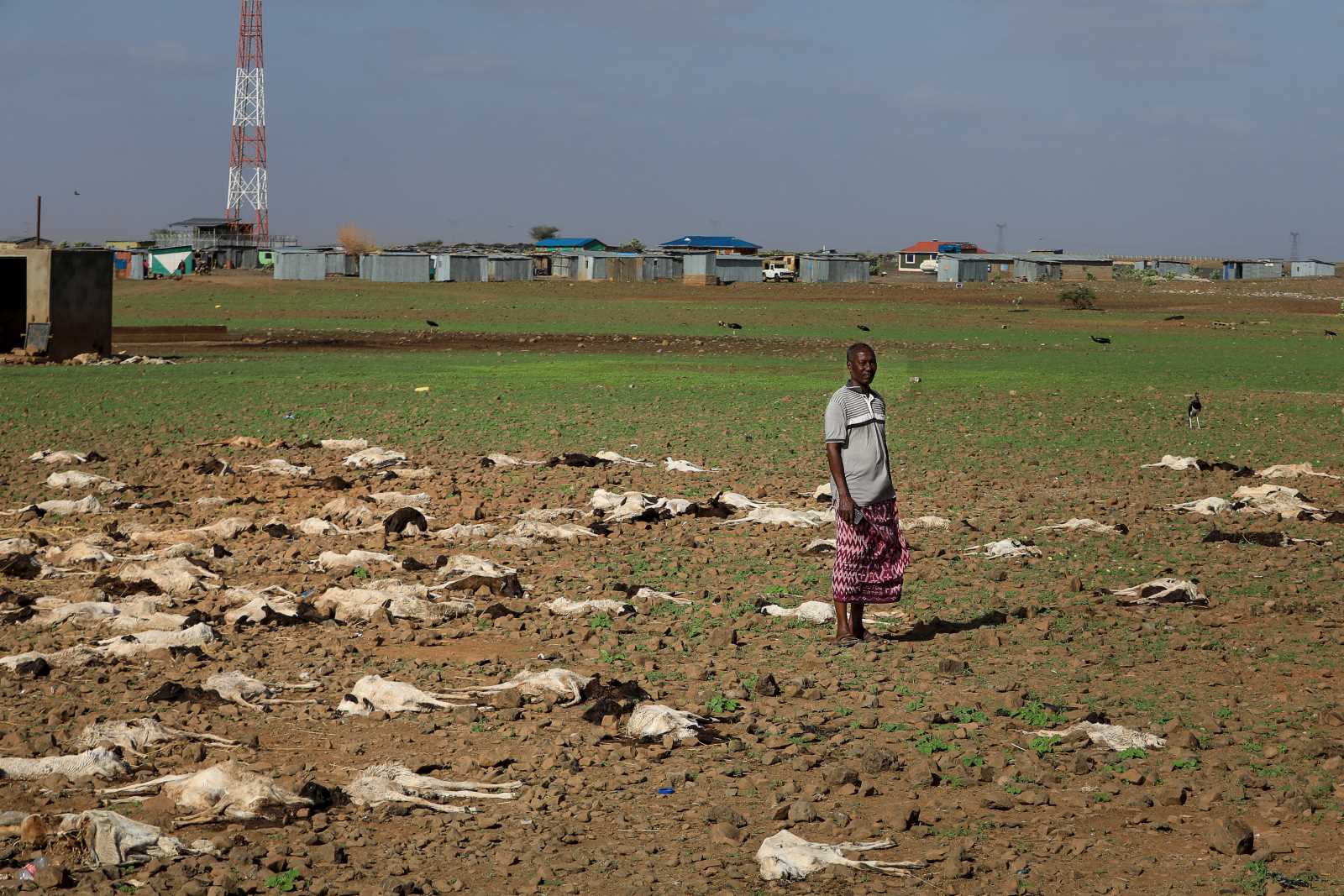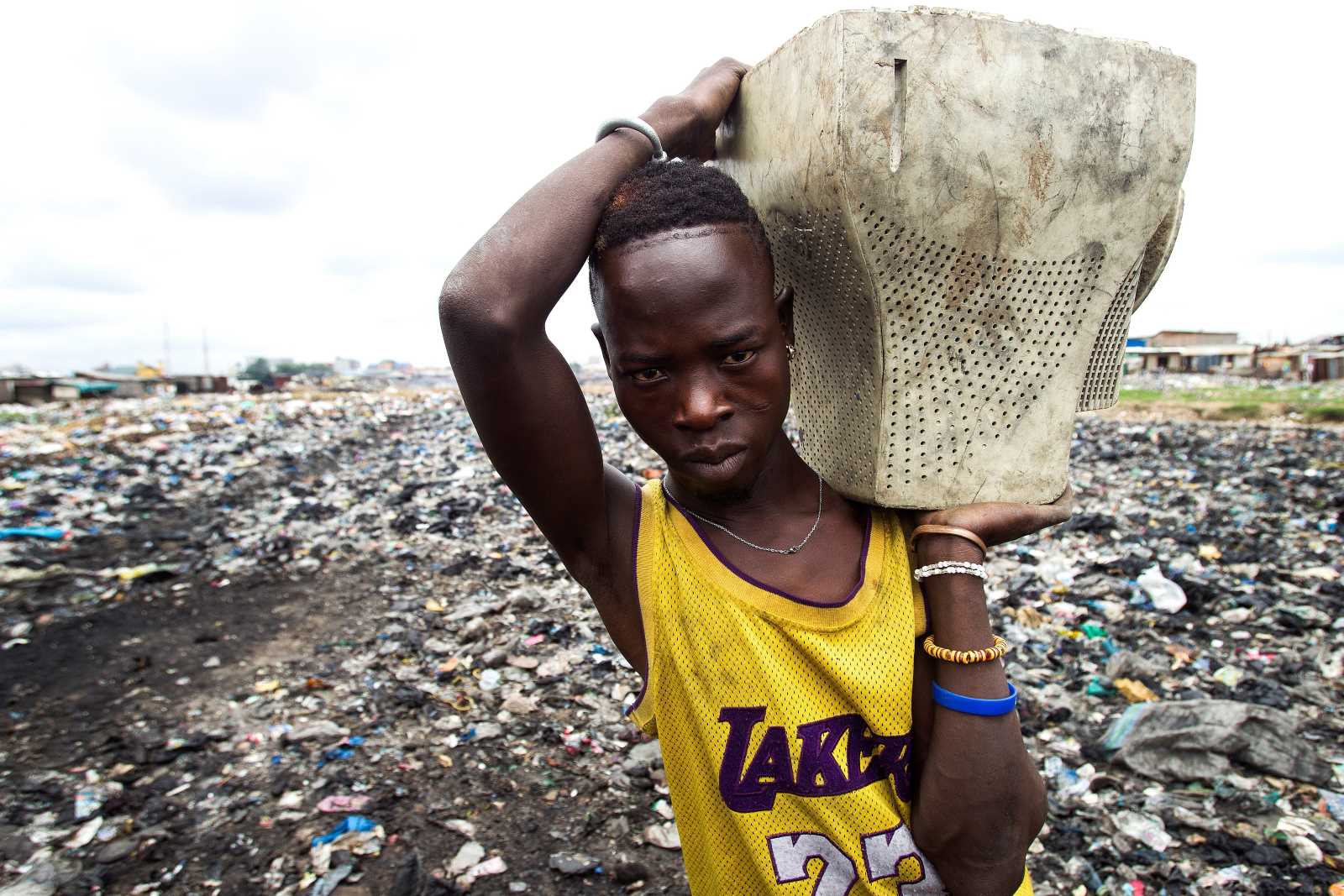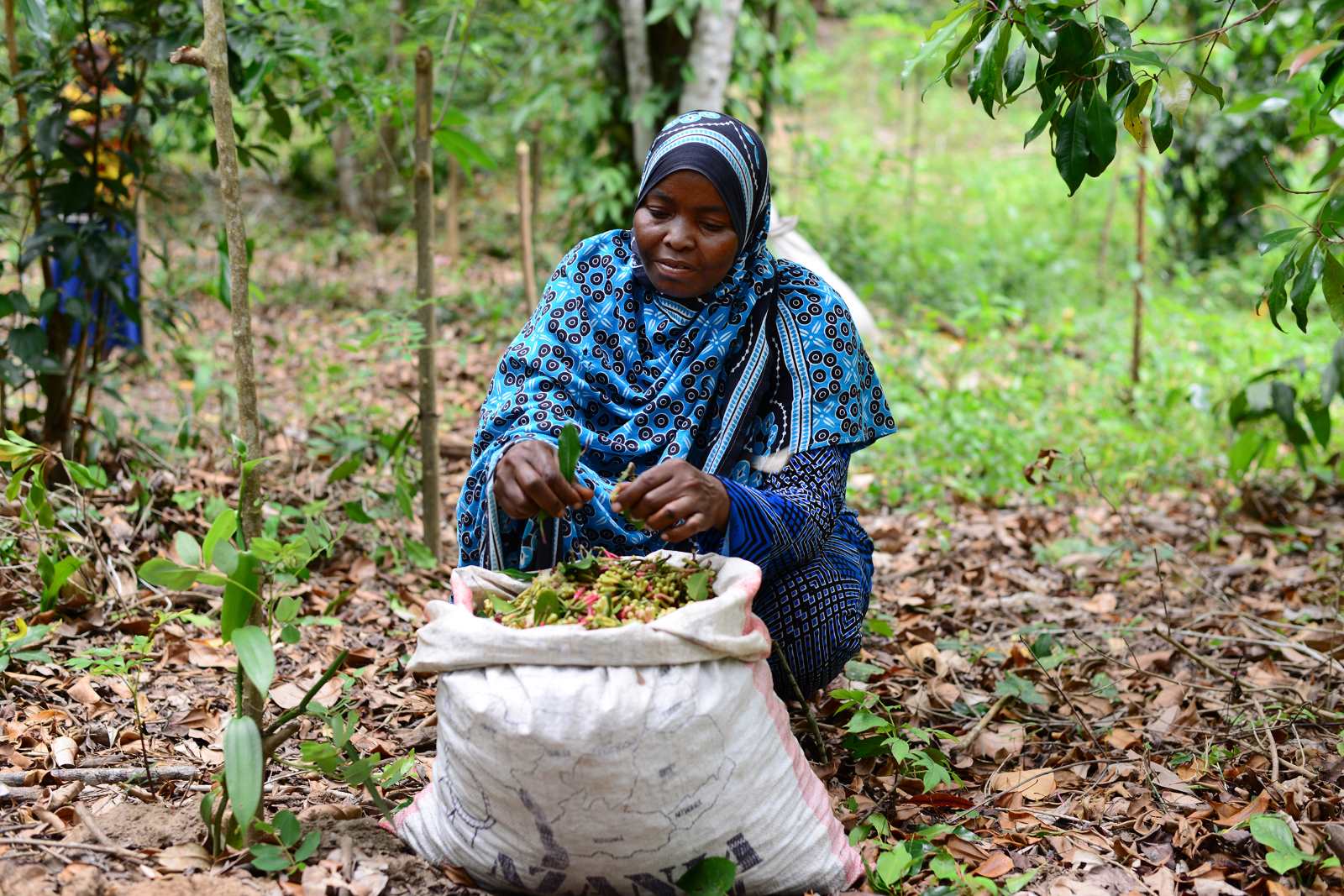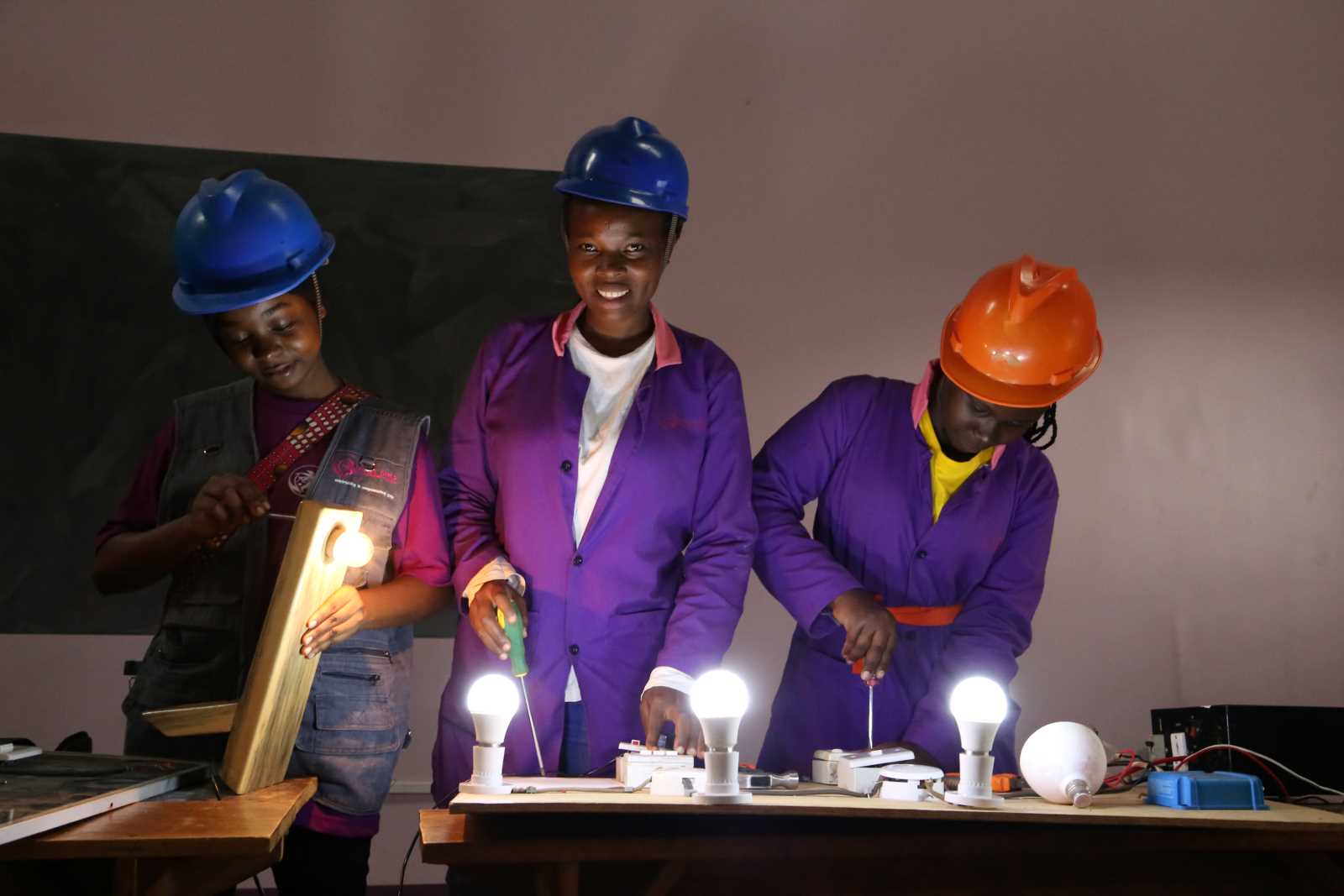Empowerment
The afterlife of fast fashion
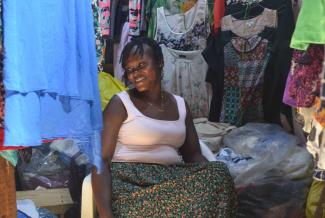
Kantamanto Market is believed to be largest of its kind internationally. In early January, it burnt down completely. The flames claimed one life. Many were injured. For masses of people, the disaster was a major personal setback. In developing countries, unplanned informal settings are especially exposed to fire hazards.
As the community did after previous fires, it must now rebuild livelihoods. In normal times, Kantamanto Market receives roughly 15 million used garments from all over the world every week, according to the non-governmental Or Foundation. The second-hand goods arrive in huge bales weighing 55 kilogrammes or more, often collected in Europe or North America as charitable donations.
More than 30,000 people have created jobs for themselves in Kantamanto. They earn money by sorting, washing, ironing, repairing, dying and remanufacturing clothing items. Countless tasks are performed to make the goods sellable again.
Shatta’s experience
Experiencing shocks in everyday life is not unusual, as Janet Kyerewaa knows only too well. She is a trader who buys bales and then sells the contents. Her nickname is “Shatta”, because her non-nonsense attitude reminds people of the African Dancehall star Shatta Wale. Buying a bale is like taking part in a lottery, since traders cannot check the content of such a bulk shipment. Cutting a bale is “mind-blowing” when the quality is poor, she says.
Janet runs a wholesale and a retail operation. When she opens a bale, resellers, who have shops of their own or work as door-to-door vendors, make their choices. They are called “selectors”. If the quality is high and the first buyer takes a good number of pieces, Janet will immediately recover a large share of what the bale cost her.
Normally, the first selector will buy 60 to 100 pieces, but sometimes the number drops below 30. That means she will have to sell more items in retail, which takes much longer. On a good day, customers at her retail stall will buy 15 to 20 pieces. Poor quality implies low prices, of course, and Janet sometimes reduces them further to speed up sales.
As soon as she has enough money to buy a new bale, she’ll go for it: “The clients want to see new things, otherwise they lose interest,” she says.
Janet is from Ghana’s Eastern Region and came to Accra more than 20 years ago. She did various kinds of jobs until she eventually became able to pay for her own stall at Kantamanto. The second-hand trade helped Janet to raise her two children. She still hopes Accra will only be a step on her way to Canada, from where she wants to export second-hand clothing.
“Kantamanto is growing,” Janet observes, “but business is going down.” In her experience, the quality of garments has been declining for some time. What she cannot sell, she passes on to her younger sister, who sells outside Kantamanto and to street hawkers. Some pieces are too torn and stained to be used at all and must be discarded as waste.
Individual strategies
People who work in the informal sector are often only one step away from poverty. They typically lack social protection such as health insurance or pension coverage. They get no vacations and no unemployment benefits. Running a Kantamanto business is therefore typically not what people plan to do in their lives. For many, however, it is the most attractive option they have. Virgin, for example, used to work as a credit officer, but the financial institution she worked with had to close four years ago in the course of Ghana’s “Financial Sector Clean-Up”. She then joined her sister Zabiatu in Kantamanto and is now running her own stall. Like her, many people in Kantamanto primarily rely on relatives as partners, since those are people they trust. Written contracts are very rare in informal settings, and there is a lack of access to legal means of enforcement.
Even though selling second-hand clothing is not what most people plan to do in their lives, the traders make the most out of it by developing various business strategies. Some specialise in jeans or handbags, for example. Virgin and Zabiatu focus on children’s wear, which moves faster. “You can make good money, as long as the quality is good,” says Virgin. They save the best pieces for Christmas, because that is “when buyers are ready to spend more”, Zabiatu explains.
The two sisters too have noticed that the quality of second-hand clothing is getting worse. The main reason is what is called “fast fashion” in high-income consumer societies. Cheap garments are produced to be worn only a few times and then replaced by items from the next monthly collection of the likes of H&M, Primark and Zara.
Ever more waste
Experts reckon that 40 % of all items that arrive at Kantamanto today end up as waste. Indeed, Accra is overwhelmed by textile waste. In some places, it piles up as high as houses. “Tentacles” of several metres length pollute the beaches. A modern landfill, which was built with World Bank support and opened in 2020, is overflowing already, though it was supposed to stay operational for 25 years. Most garments include some plastic, which means the garbage does not decompose fully and poses long-lasting environmental hazards.
Due to an unfavourable exchange rate and other reasons, the prices of bales have been rising while the quality of clothing has been declining. Trader’s profit margins are often too small to feed the families. Some traders take loans to buy additional bales, which aggravates their situation, as they have to pay back the loans with high interest rates. Others resort to upcycling or even re-manufacturing garments.
Some persons have managed to create fashion brands of their own and even market their goods as far away as in neighbouring Côte d’Ivoire. Orders via WhatsApp and payment by Mobile Money have simplified cross-border trade. Businesses like upcycling, however, require more – and more expensive – equipment than traders need. Much of this capital stock was lost in the recent blaze. Getting restarted will be impossible without considerable investment, which may prove very difficult to finance.
Even without this disaster, Kantamanto operations had been becoming increasingly unviable in recent years, according to the Or Foundation. Far too many items are flooding the informal market, and far too many are of low quality.
Liz Ricketts, co-founder of the Foundation, argues that fast fashion is a huge problem: “Most of what ends up in Kantamanto is donated simply because fast fashion requires turnover.” She says that the items are not made to be loved, kept and cared for. They are meant to be discarded fast. As people in high-income countries stop appreciating their garments, second-hand clothing is becoming more of a garbage issue and less of an opportunity in disadvantaged countries.
What the Or Foundation does
The Or Foundation is focused on Kantamanto and has been campaigning for its improvement.
- At the individual level, it supports vocational-training programmes that create sustainable livelihoods. This is particularly important for head porters, known locally as Kayayei, whose heavy loads can cause potentially fatal spine damage. Training has also helped upcyclers to create fashion brands of their own. The Foundation is testing ways of recycling or developing new materials from worn textiles.
- At the organisational level, it is empowering a coalition of women retailers in Kantamanto. They demand a safer and healthier workplace environment. For example, they handed out 490 fire extinguishers to be installed throughout the market.
- At the level of national and international advocacy, the Or Foundation calls for improvements to waste management and labour conditions. Among other things, it is speaking out in favour of extended producer responsibility (EPR) for garment producers around the globe.
In November 2022, Janet Kyerewaa travelled to France as a member of an Or Foundation delegation for a conference. France is a leader in regard to EPR, having introduced a mandatory system of textile-waste collection and recycling in 2007. Sweden and the Netherlands followed recently. These initiatives only cover recycling costs within the respective nation state, however. Much more must happen.
Susanne Giese is a freelance development consultant based in Accra. She would like to thank the Or Foundation’s Melody Serafino, Abena Essoun, Patrick Abesiyine and Sammy Oteng for their support as well as all Kantamanto traders who granted her interviews.
susanne.giese@arcor.de


